Editor’s note: The No. 1 issue in the closing days of the Seattle City Council primary election is housing. Many residents recoiled at Mayor Ed Murray’s recommendation to open up single-family neighborhoods to condos, flats, backyard cottages and row housing.
All that angst prompted the editorial board last week to ask City Council candidates if they supported the mayor’s Housing Affordability and Livability Advisory (HALA) Committee’s proposals and what policies they would pursue if elected.
As we prepared to publish the survey, the mayor on Wednesday abruptly announced he was withdrawing his recommendation on single-family zoning.
With the most controversial element of the mayor’s plan off the table, we edited the survey to include just the housing policies candidates favor. Below are responses from all City Council candidates who responded to our survey. Those candidates who did not respond are noted.
Jump to each district or position
District 1

Phillip Tavel

I would support acquiring existing affordable multifamily housing by the city. I think that we should use surplus and underutilized public land to develop affordable housing. I support the Tenant Screening Portability Act. I would absolutely look to improve interdepartmental coordination. I strongly support the recommendation to provide tax exemptions for responsible landlords who commit to income and rent restrictions. I would work to expand the Housing Trust Fund and the City Growth Fund. I would absolutely pursue protections to minimize the displacement of marginalized populations. Lastly I would work to increase the impact of the Tenant Relocation Assistance Ordinance.”

Lisa Herbold

I will pursue the commercial linkage fee and mandatory inclusionary housing, ensuring obligations are shifted to housing for lower-income renters than under current policy. This has been in my platform since February. I will pursue restoring the Seattle Police Department’s Community Service Officer program, upon which I have also been campaigning. I will address screening for tenants with criminal histories unrelated to their housing suitability; being screened out is one of the biggest contributors to homelessness.”
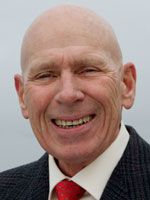
Chas Redmond

I favor the ADU/DADU (accessory dwelling unit and detached accessory dwelling unit) approach and reducing restrictions for onsite housing units. I favor additional housing levys and inclusionary zoning. I favor village expansion although it must include a robust collaboration with the 38 urban-village stewards. I favor using town houses and row houses as a buffer zone between single-family housing areas and urban village mixed use or neighborhood commercial areas. I favor research into a municipal bank, which could help with purchases of older apartment buildings and act as an investment backer for nonprofits to purchase and manage older structures. I also favor a rent-stabilization program.”
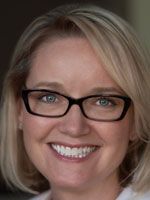
Shannon Braddock

I applaud the HALA Committee for its hard work and look forward to working on refining and implementing many of the recommendations — particularly programs that help renters and homeowners, encourage workforce and family housing, and provide real tools like inclusionary zoning, commercial linkage fees and other funding. Increasing affordability and responsibly managing development is a long-term, complex problem that requires a vision for the neighborhood character we want to protect, and the neighborhoods we aspire to build in a growing, diverse and inclusive city.”

Karl Wirsing

I strongly support HALA’s goal of protecting low-income renters and the most vulnerable homeowners, which is essential to preserving the diversity and historical character of our neighborhoods. I would also vigorously pursue recommendations to make sure all new housing developments include significant numbers of affordable units, and that new commercial developments contribute to affordable housing funds. Also, related to my work at the University of Washington’s School of Environmental and Forest Sciences, I very much support modifying building codes to allow for taller wood construction, which can be a very big deal in supporting a sustainable — and more affordable — housing economy.”

Brianna Thomas

If elected, I will pursue HALA’s recommendation to implement mandatory inclusionary zoning, so that residential developers must either include affordable housing units in their developments or pay a fee into the city’s affordable-housing trust fund. This is a reasonable exchange for allowing upzoning in our urban centers and villages. I believe this requirement should be expanded, however, to include even low-density residential development in single-family neighborhoods. I would also pursue a linkage fee on all commercial developments. Those who profit from development need to give something back to the community and help ensure that Seattle remains affordable.”
Arturo Robles

No response received”
Jody Rushmer

No response received”
District 2
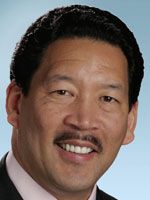
Bruce Harrell

I support adding 50,000 more housing units and 20,000 new affordable units and the expansion of resources to accomplish this: mandatory inclusionary zoning; use of the real-estate excise tax; increasing the housing levy; expanding the Multifamily Tax Exemption program; expanding the State Housing Trust Fund; and reinstatement of the City Growth Fund. I support building affordable housing on vacant or underdeveloped public land. I am also hoping we elevate the housing crisis to an issue that all stakeholders adopt as an issue they own. The developer and business communities must understand that they, too, have responsibility in achieving housing affordability.”

Josh Farris

I particularly like the portable tenant-screening reports and call for strengthening the Tenant Relocation Assistance Ordinance. The HALA report overall is a dubious private-partnership fantasy for big developers that aims to continue to put profit before people in Seattle. I support strengthening Just Cause Eviction Protection for tenants and people in foreclosed houses. We need a vacancy-fine ordinance for the thousands of empty houses being held off the market and the overpriced commercial real estate that sits empty for years at a time. Jon Grant’s “New Direction Seattle” is a real plan.”

Tammy Morales

The HALA report has strong recommendations for increasing production, but very little to address displacement. I want to ensure that investment in our neighborhoods remains affordable for longtime residents. I will fight against the forces of displacement and work for: 1) A more robust linkage fee to generate revenue for affordable housing. 2) Changes to the Multifamily Tax Exemption that result in more family-sized units, longer affordability and preservation of homes that are affordable now. This is the only tax incentive program Seattle has and it has not served low-income families well. To see my other priorities, visit http://www.moralesforseattle.com/category/articles“
District 3

Pamela Banks

I am excited and supportive of nearly all HALA recommendations. As a 20-year Central Area resident and Urban League president, I see every day the lingering impacts of housing discrimination in Seattle and the need to have an honest dialogue about how to build a city that is racially and economically equitable. I will aggressively pursue inclusive zoning, linkage fees and other policies that jumpstart the construction of quality, affordable housing for all.”
Kshama Sawant

No response received”

Morgan Beach

My focus would be on the strongest policies possible to implement robust mandatory inclusionary housing, making sure we have policies to ensure people from all economic and demographic backgrounds can live in any part of the city. I would also focus on building stronger provisions for family friendly housing onto the HALA recommendations, including adding zoning requirements to build family sized (two to three bedroom) units in new construction buildings that are also subject to required mandatory inclusionary housing minimums. I support strengthening funding priorities that provide incentives for the Multifamily Tax Exemption and three-bedroom exemptions to floor-area ratio calculations.”

Rod Hearne

The HALA committee seems to be fighting for two values: first, the need to grow sustainably as a city and a region; second, the need to grow fairly so that every neighborhood in some way or another steps up to meet the challenge. Anyone who has a job in Seattle should be able to afford to live in Seattle. All of the policies recommended by the report, with a great deal of community input and a bit of tweaking, may be workable components of our overall affordability challenge.”
Lee Carter

No response received”
District 4

Rob Johnson

I’d like to see us increase the size of the housing levy, work with landlords to preserve existing affordable housing, increase heights around light rail in the U-District, eliminate parking requirements for backyard cottages and work with the council to implement inclusionary zoning. A balanced combination of approaches would help Seattle grow in a smarter and more equitable fashion by increasing intentionality in city programs, land use, neighborhood character and development. Providing housing across income brackets is essential. Pushing people to live further away from our city will only make our congestion and environmental impacts worse.”
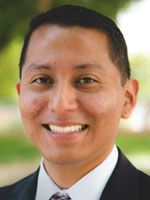
Abel Pacheco

Three priorities: First, I live in a mother-in-law unit and, as such, I’m an advocate for modifying the land-use code and providing low-cost loans for homeowners to create more of these units. It has been a great partnership between myself and the homeowner. I have affordable housing, she’s able to bring in additional income, and we both live a neighborhood that we love. Second, improve interdepartmental coordination. Third, Seattle is welcoming a lot of young families and I’d like to be an advocate for more family friendly housing. For example, modifying the Multifamily Tax Exemption program to incentivize more family friendly units.”

Michael Maddux

I am very happy that developers have agreed to inclusionary zoning as part of the deal, and I would be particularly interested in working with developers on implementing this proposal. Additionally, working to implement measures designed to encourage more family-size units and missing middle building types are proposals I am particularly interested in. Additionally, measures to open more opportunity for home ownership are very appealing, and I would work closely with the council, the mayor and people in District 4 on making home ownership a reality for more families.”
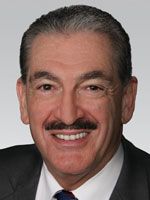
Tony Provine

First, ensure public involvement. HALA was overwhelmingly comprised of developers. Its proposals would do little to make housing affordable or create housing for working families. I propose the city issue $500 million in bonds for a Housing Bond Program; reestablish Seattle’s Growth Related Housing Fund; establish a loan and bond guarantee program for non-profit housing projects; expand the use of housing vouchers; and build more public housing. I would pursue these HALA proposals: the Commercial Linkage Fee and mandatory inclusionary housing requiring 5 percent to 7 percent of units be affordable for residents earning up to 60 percent of our area’s median income.”
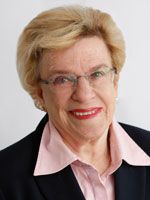
Jean Godden

The HALA proposals are a good beginning and a solid, initial framework that will require much work and analysis over at least the next couple of years to achieve the goal of more affordable housing. I will pursue such recommendations as inclusionary zoning and will work to preserve existing affordable units. I will also undertake efforts to reform the Multifamily Tax Exemption program.”
District 5
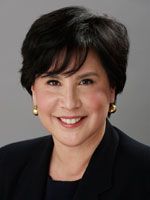
Debora Juarez
 I moved to the North End 25 years ago, first as a renter and then as a homeowner in a single-family zone. I have watched the growth in our district and I share our residents’ passionate desire to protect our neighborhood character. I also support taking sensible actions to give folks more housing options, like applying a fee on commercial development to build affordable housing, requiring developers include affordable housing when building on properties in our urban villages, expanding our Multifamily Tax Exemption program, and establishing a Supportive Housing Medicaid Benefit to get chronically homeless and disabled folks into permanent housing.”
I moved to the North End 25 years ago, first as a renter and then as a homeowner in a single-family zone. I have watched the growth in our district and I share our residents’ passionate desire to protect our neighborhood character. I also support taking sensible actions to give folks more housing options, like applying a fee on commercial development to build affordable housing, requiring developers include affordable housing when building on properties in our urban villages, expanding our Multifamily Tax Exemption program, and establishing a Supportive Housing Medicaid Benefit to get chronically homeless and disabled folks into permanent housing.”

Halei Watkins
 I support backyard cottages and mother-in-law apartments as a win-win for both renters and homeowners. There is potential for homeowners to build thousands of those units across the city. Additionally, a top priority of mine will be increasing support and protections for renters. There are a number of tools that we can use including portability of tenant-screening reports, increased tenant-counseling services, landlord education and reworking our relocation assistance ordinance. There is much, much more to HALA and affordable housing than can be discussed in 100 words. Visit my website haleiwatkins.com for more information.”
I support backyard cottages and mother-in-law apartments as a win-win for both renters and homeowners. There is potential for homeowners to build thousands of those units across the city. Additionally, a top priority of mine will be increasing support and protections for renters. There are a number of tools that we can use including portability of tenant-screening reports, increased tenant-counseling services, landlord education and reworking our relocation assistance ordinance. There is much, much more to HALA and affordable housing than can be discussed in 100 words. Visit my website haleiwatkins.com for more information.”

Debadutta Dash
 The proposal is 78 pages long and contains 65 promising recommendations. Principally, I would focus on those that would accelerate the development of low-income and workforce housing near the Northgate Urban Center, and in our hub urban villages, which have the benefit of frequent, reliable transit and a concentration of services. I also support strategies related to the dedication of additional resources for the development of low- and moderate-income housing. Finally, I would introduce the concept of pursuing targeted foreign investment (EB-5) to help close funding gaps for low-income housing projects.”
The proposal is 78 pages long and contains 65 promising recommendations. Principally, I would focus on those that would accelerate the development of low-income and workforce housing near the Northgate Urban Center, and in our hub urban villages, which have the benefit of frequent, reliable transit and a concentration of services. I also support strategies related to the dedication of additional resources for the development of low- and moderate-income housing. Finally, I would introduce the concept of pursuing targeted foreign investment (EB-5) to help close funding gaps for low-income housing projects.”
Kris Lethin
 As we struggle with housing affordability and how to grow, we must not forget our duty to protect and maintain property rights of owners. Restoring a trusting relationship between the city and the citizens is a needed focus. Growth might be better achieved by empowering neighborhoods through a delegation of meaningful authority, responsibility and local opportunity for community enhancement. These principles could be a way to start building trust. Resolving Seattle’s legacy of social inequality is an admirable aspiration and could also align with the goal of building trusting relationships. I will partner with like-minded councilmembers toward achieving that goal.”
As we struggle with housing affordability and how to grow, we must not forget our duty to protect and maintain property rights of owners. Restoring a trusting relationship between the city and the citizens is a needed focus. Growth might be better achieved by empowering neighborhoods through a delegation of meaningful authority, responsibility and local opportunity for community enhancement. These principles could be a way to start building trust. Resolving Seattle’s legacy of social inequality is an admirable aspiration and could also align with the goal of building trusting relationships. I will partner with like-minded councilmembers toward achieving that goal.”

David Toledo
 I am fearful that the mayor’s plan would open the door to out-of-control apodment developments throughout our residential neighborhoods, housing dozens of renters but providing no additional parking. I support mother-in-law cottages, but am against the property splitting and no-limits construction of multiple micro-apartments on a single-family plot. I understand that some flexibility is needed, but I will stand with my neighbors in demanding the preservation of the historic character of our residential neighborhoods.”
I am fearful that the mayor’s plan would open the door to out-of-control apodment developments throughout our residential neighborhoods, housing dozens of renters but providing no additional parking. I support mother-in-law cottages, but am against the property splitting and no-limits construction of multiple micro-apartments on a single-family plot. I understand that some flexibility is needed, but I will stand with my neighbors in demanding the preservation of the historic character of our residential neighborhoods.”
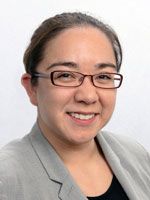
Mercedes Elizalde
 1) Mandatory inclusionary zoning with the commercial linkage fee; (2) Using the MFTE to emphasize family sized units with two, three or more bedrooms; (3) Reinstating the Growth Fund to set aside money from the general fund to acquire and rehab affordable rentals to keep them affordable; (4) The hotel tax short-term rental (like AirBnB) and revenue would support the Growth Fund; (5) Using public land to build affordable housing and prioritizing affordable rentals around the new light-rail stations; (6) Tenant’s rights: Ban the box, increasing Tenant Relocation Assistance Ordinance, portable screening and local subsidies for the lowest-income people.”
1) Mandatory inclusionary zoning with the commercial linkage fee; (2) Using the MFTE to emphasize family sized units with two, three or more bedrooms; (3) Reinstating the Growth Fund to set aside money from the general fund to acquire and rehab affordable rentals to keep them affordable; (4) The hotel tax short-term rental (like AirBnB) and revenue would support the Growth Fund; (5) Using public land to build affordable housing and prioritizing affordable rentals around the new light-rail stations; (6) Tenant’s rights: Ban the box, increasing Tenant Relocation Assistance Ordinance, portable screening and local subsidies for the lowest-income people.”
Sandy Brown
 HALA presents a wide array of policy decisions in a span of nearly 2½ years, and since most of these policies require City Council, state and/or voter approval to enact, HALA is actually a roadmap for increasing our housing supply, not a single legislative package. Public input would improve HALA’s recommendations. As a councilmember, I would be certain the public is deeply involved at every step. I support the general philosophy of targeting growth in urban villages and would focus my efforts on policies that supply affordable housing for individuals and families of 0 to 60 percent area median income.”
HALA presents a wide array of policy decisions in a span of nearly 2½ years, and since most of these policies require City Council, state and/or voter approval to enact, HALA is actually a roadmap for increasing our housing supply, not a single legislative package. Public input would improve HALA’s recommendations. As a councilmember, I would be certain the public is deeply involved at every step. I support the general philosophy of targeting growth in urban villages and would focus my efforts on policies that supply affordable housing for individuals and families of 0 to 60 percent area median income.”
District 6

Mike O’Brien

None of these changes will happen without significant City Council deliberation and public input. This fall, the council plans to craft and pass a resolution that would identify which of the recommendations from HALA we plan to prioritize in our upcoming work, what committees that work will go through and what the anticipated timeline for that work is. We may also use the resolution as an opportunity to clarify the council’s interpretation of any HALA recommendations that are causing confusion. This resolution itself will go through at least 3 public committee meetings and a public hearing.”

Stan Shaufler

I would work to address affordability honestly. I would not disguise the take away of thousands of affordable alternatives for the promise of a few hundred replacements.”

Jon Lisbin

I support many strategies the HALA Committee came up with, including: 1) Increased density near light rail and high speed transit; (2) strategic acquisition of affordable housing; (3) permanent supportive housing for vulnerable members of society; (4) social impact bonds; (5) dedicating a percentage of tax revenue from new construction for affordable housing; 6) re-calibrating the Multifamily Tax Exemption program; (7) Renewing the housing levy. We cannot keep increasing density without supporting infrastructure. Seattle needs developer impact fees to pay for streets, roads and schools. Developers must pay their fair share or they will leave us holding the bag after the next downturn.”

Catherine Weatbrook

I would pursue policies to provide incentives to increase the number of two- and three-bedroom units available for affordable housing, take action to preserve existing affordable units and promote sustainable homeownership. I would oppose removing the owner-occupancy requirement because it favors out-of-area investors and development corporations. I would instead look for policies that empower local residents to be part of the affordable housing solution. I would pursue a policy that would require one-for-one on-site replacement of affordable units lost to redevelopment.”
District 7

Sally Bagshaw

I am currently an elected member of the Seattle City Council. I wrote a letter to the mayor on Jan. 15 where I outlined many of my recommendations. My suggestions included: (1) Incentivize investments along transit corridors and nodes; (2) Increase height along transit corridors and charge impact fees; (3) Negotiate for inclusion of affordable housing on site; (4) Promote tiny houses, ADUs, DADUs and more roommates to help seniors and others stay in their homes.”
Gus Hartmann

No response received”
Deborah Zech Artis

I would go section by section of the proposal for complete review. Voters need to have a voice about what policies are instituted in their neighborhoods. A public vote by district may be needed instead of a citywide vote.”
Position 8

Tim Burgess

I would pursue Mandatory Inclusionary Housing, the commercial linkage fee, modifications to strengthen the Multifamily Tax Exemption, new capital investments, and relaxing restrictions on backyard cottages and accessory dwelling units. These polices would represent a striking and positive shift in affordable housing policy for the city. If implemented correctly, these new policies would create affordable housing at a variety of income levels. We should focus on the policies that would provide the most significant number of affordable units and not get distracted by other recommendations that would create massive opposition and threaten to derail this entire worthy effort.”

Jon Grant

Linkage fees. Given the building boom, we must require developers to share the cost of mitigating the demand for affordable housing created by development. We can do this now. On the other hand, the Mandatory Inclusionary Housing program, as proposed by HALA, would not be passed for years. Unlike HALA, I would have it apply to all residential and commercial construction with no phase-in period. Fees would be tiered and require 5 to 10 percent onsite performance and would result in an estimated $1 billion in new revenues for affordable housing Seattleites so desperately need. To see my full proposal, visit www.newdirectionseattle.org”

John Roderick

Reduce parking minimums to reflect costs that are posed to developers and then passed to renters. Encourage alternatives so that residents can live comfortably without a car. Expand Mandatory Inclusionary Zoning and the successful Multifamily Tax Exemption program. Establish bonding authority for city-owned and operated affordable housing. This is a common-sense proposal that the city can take the lead on. I would allow for upzoning in some single-family-zoned areas. This is the most controversial proposal because it reflects the urgency of our housing crisis — we need units now. This proposal would increase density in select areas while maintaining neighborhood character.”

John Persak

The affordable housing and neighborhood safeguards should be in place before embarking on major zoning changes across our city. Without this, the city would have no leverage to ensure that developer impacts on traffic, displacement and quality of life are mitigated in advance. A running theme throughout the HALA proposal is that building more supply and shifting tax liability to the working class would reduce housing costs. This theme is a repackaging of Reaganomics, the catalyst behind wealth inequality for the past 30 years in our country. Progressives have no business recycling this failed economic policy for housing in Seattle.”
Position 9

Lorena González

These recommendations represent an important conversation about how our city balances values of affordability and inclusiveness with our commitment to single-family residential communities. Policymakers must strike the right balance between inviting density and growth to areas where we can support and nurture families of low and moderate incomes while preserving the character and affordability of single-family neighborhoods, particularly for seniors, young families and communities at risk of displacement from Seattle. We should continue to explore modifications to single-family zones. I will focus on exploring mandatory inclusionary zoning, a commercial linkage fee, the Multifamily Tax Exemption, increased tenant protections and support, and promotion of homeownership.”

Bill Bradburd

HALA meekly seeks inclusionary requirements of 7 percent affordable units in a project — this must be increased. Require greater in-lieu fees to ensure onsite production of affordable units and not exempt highrises from including affordable units. HALA avoids requiring linkage fees for residential units — we should use high-end housing to fund affordable units. HALA suggests apartments in all low-rise zones — we should disallow town house and row house configurations in the Lowrise 3 zone and only allow higher-density apartments and flats there. HALA avoids discussion of city-owned housing — we should use our bonding capacity to produce and purchase housing.”
Thomas A. Tobin

No response received”

Alon Bassok

Throughout my campaign, I have advocated for mandatory inclusionary upzoning. I am delighted to see this tool be prominently featured in the HALA recommendations. I would like us to go further and have 20 percent affordable units, not the 5to 7 percent offered in the HALA recommendations. I also believe we need to make sure all buildings have affordable units and include downtown in the policy. Finally, we need to make sure that the people who earn the nation’s most progressive minimum wage are able to live here. That would be truly affordable.”